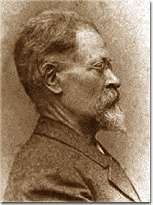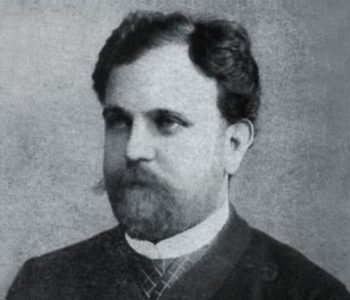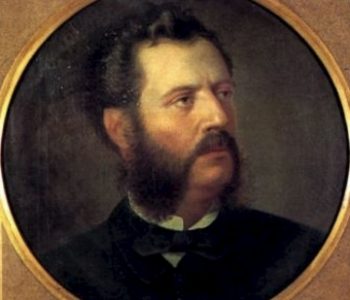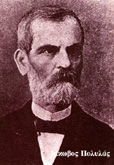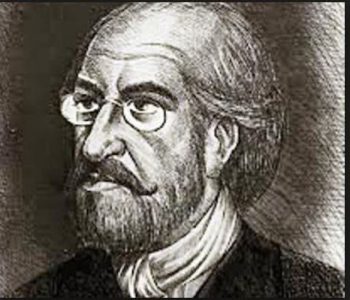
Author: Foscolo, Ugo Foscolo
Date of Birth: 6 February 1778, in Zakynthos
Gender: Male
Biography: Foscolo was born in Zakynthos in the Ionian Islands. His father Andrea Foscolo was an impoverished Venetian nobleman, and his mother Diamantina Spathis was Greek. In 1788, upon the death of his father, who worked as a physician in Spalato, today Croatia (Split), the family moved to Venice, and Foscolo completed the studies he began at the Dalmatian grammar school at the University of Padua. Amongst his Paduan teachers was the Abbé Melchiore Cesarotti, whose version of Ossian was very popular in Italy, and who influenced Foscolo’s literary tastes; he knew both modern and Ancient Greek. His literary ambition revealed itself in the appearance in 1797 of his tragedy Tieste—a production that enjoyed a certain degree of success.
Ergographia
Selected literature
Introduction by R. Nicolì
This digital edition of Foscolo’s work Scritti sulle Isole Ionie reproduces the text of the Edizione Nazionale edited by Giovanni Gambarin and published by Felice Le Monnier in 1964, whose complete title is Prose politiche e apologetiche (1817-1827). The section on Parga, also included in the Prose politiche e apologetiche, has not been reproduced since it is not related to the POLYSEMI project area. However, a preliminary statement should be made: this text was selected to be included in the POLYSEMI Digital Library although it is not a proper travel text, since it gives an overview of the historical and political situation of a wide area included in the Project Area, at a given and critical point in history, and from the perspective of the most important intellectual in the eighteenth-century European literary scene.
In the Edizione Nazionale Le Monnier, the texts on the vicissitudes of Greece are collected in the first tome of volume XIII, divided into two groups: the Scritti sulle Isole Ionie, which deal in particular with issues related to the Constitution given to the Ionian Islands by the British government, and the Scritti su Parga, about the painful events of the city in Southern Epirus, here not reproduced[1].
The text on the Ionian Islands, not much discussed by critics today[2] and, to a certain extent, very distant from the author’s major works, was written by Foscolo during his exile in London and is deep proof of his affection for his native land, which experienced complex and conflictual events. In fact, after the fall of La Serenissima, the Ionian Islands were ruled by the Republican French; in 1799 a temporary government under Russian and Ottoman sovereignty was set up and prepared for the establishment of the Septinsular Republic (Επτάνησος Πολιτεία: 1800-1807).[3]
The British rule officially started in 1815 and lasted until 1864, when the archipelago became part of the Greek state permanently. Inevitably, the period after the shift from the Venetian dominion to other regimes saw a series of compromises between the emerging forces and the old ruling classes, producing many changes in the Ionian Islands’ social, political and cultural life and generating a particularly burning interest in the events related to Bonaparte’s fall.
Foscolo’s link with the Ionian Islands, the hopeful expectation that he would come back there one day, and the cult of Hellenic tradition are the most important themes of the pages written on Greece during his stay in London. Furthermore, the troubles of the Seven Islands people were the subject – often the only topic – of the correspondence between the author and his family and relatives who lived in those areas, but also of the letters he exchanged with many Greek young men who went and study in Italy, especially in Venice[4], within a well-established tradition. Primarily thanks to the Greek young men, then returned to their homeland, Foscolo’s compatriots recognized the political role of the «rivoluzionario zantiota»[5], and his work influenced a whole generation of national poets – an influence strongly exerted also from England. Nearly two months after his death, on 19 November 1827, a Mass in his memory was said in the Catholic Church of Saint Mark in Zakynthos. The poet Dionisios Solomòs gave his Elogio di Ugo Foscolo, pointing out how the pain of Zakynthos inhabitants had started as the writer left the island[6].
Foscolo arrived in England, as an exile, in 1816. Only eight years before, the poet had joined the army which Napoleon hoped to invade Great Britain with. What attracted the author about England, as shown by his writings, seems to concern two key issues: freedom of individual citizens and thus of the whole people and national political independence. Great Britain represented both issues in Foscolo’s view, especially after the decades of the revolutions, the Napoleonic wars, and the resulting disappointment had spread love of freedom as a mass phenomenon. In Restoration Europe only England could be really defined as free: «Qui il corso delle vicende umane ha procurato agli abitanti un porzione di giustizia, cultura e libertà tanto grande quanto il genere umano mai conobbe; e se la natura umana non cambia, non credo che esso sia stato creato per raggiungerne di più».[7]
Great Britain, according to the author, had complete national independence and unassailable freedom civil guarantees for its citizens, also indicated by the possibility of expressing and disseminating their own opinions through the press, perceived by Foscolo – in line with the Enlightenment ideals – as a very powerful means of guiding public opinion and determining the future of a nation. Thanks to freedom and certainty over law enforcement, access to wealth was proportioned to individual virtue; the social pyramid was not set but flexible: hence, historic élites were quite open to the rising middle-class initiative, and their traditional aristocratic style, although preserved, was extended to other classes.
The structure Foscolo adopts in his Scritti entails a point-by-point development, nearly in the form of precepts; the various sections are divided into paragraphs introduced by an author’s explanation of the subject choice.
In the section Stato politico delle Isole Ionie, Foscolo deals with the islands’ condition between the Treaty of Paris and the Constitution promulgated by the despotic Maitland in May 1817. In this section, the author points out that the power and autonomy of a nation are not interdependent and thus the Ionian Islands, a small and militarily weak country, had to rely on the military protection of a foreign country and accept its political control. However, the author is a committed supporter of the European identity of the Heptanese and Greece in general, but also aware of the limitations related to the granting of freedom by the English; in this part of the work, it is particularly significant that he brings into question two ideas expressed in the Constitution and considered totally divergent by the author: independence and protection, perceived as inversely proportional opportunities the English granted to the islanders. He introduces a new decisive variable in the relationship between power and independence, namely the sense of national identity, love for freedom, and independence that had spread throughout Europe over the last decades from 1792. The whole section is a sort of guide for the islanders, encouraged to avoid uprisings in order to avoid repression, but also not to show humiliating passive acquiescence behaviors, appearing in agreement and united to safeguard their freedom of expression, to practise art and commerce, to have property and transmit their own ideas and views.
They are again encouraged to make use of the press (preferably British) to inform and let European public opinion maintain the focus on the Islands’ destiny, in the hope of getting the other countries’ support.
In many passages the author reveals his disappointment over the immaturity of the Ionian people – divided, far from sharing common ideals of freedom and independence, and often uselessly argumentative –, for example when he writes:
Chi conosce i caratteri diversi, i costumi, le animosità municipali e le risse domestiche della maggior parte degli abitanti delle Isole Jonie, non può pensare alla loro concordia politica, e non sentire ad un tempo che il volerla predicare è disperatissima impresa.[8]
The wish to make their homeland progress is natural in educated citizens: a wide section of the Scritti sulle Isole Ionie is thus devoted to education. Here Foscolo expresses his ideas of education and training, which he hoped to put into effect if he could have returned to the islands to take on a leading function in their education system; he outlines a real program, focusing in particular on the need to set up a university that would have definitely reduced the outflow of Greek young men towards the other nations’ universities, even proposing Ithaca as a base. «men popolata e meno avvezza ad usanze e vizi stranieri». The young men trained in this Greek university, when their soul is ready to embrace new feelings, could have prepared for maturity abandoning those bad habits that notoriously divided the islanders.
Furthermore, Foscolo presents a clear distinction between literary and scientific disciplines and connects the formation of moral and political judgement and the development of critical thinking to the soul “education”, achieved through the study of Literature:
Letterarie discipline sono la storia, l’oratoria e la poesia, tutti quegli studi insomma che esercitano l’intelletto per mezzo de’ sentimenti del cuore, che insegnano a sentire passioni belle e generose, e rappresentarle, e desumere quindi, e diffondere e perpetuare costumi, opinioni e principj utili alla vita pratica giornaliera degli uomini. […] Le lettere ammaestrando gli uomini per mezzo dello studio degli uomini, ed eccitando passioni e commuovendo l’anima a tutti gli affetti tumultuanti dell’uomo, danno più vigore ad operare, rinforzano i sentimenti d’indipendenza individuale, agitano tutte quante le opinioni morali e politiche […][9]
Foscolo had always supported the educational role of Literature, which had to offer examples and be a lesson to present and future generations on the possible consequences of any cruel policy and on the arbitrary application of the ius gentium by the strongest power.
The last section of the Scritti illustrates the various types of constitution and ends with the analysis of the principles on which the Ionian Islands’ constitution should be grounded, with clear reference to the Treaty of Paris.
Hence, on the one hand, Greece was progressively developing the idea to obtain the political acknowledgment of its independence, ratified and made unassailable also by the constitution; on the other hand, the great European powers looked at Greece – and at the other Mediterranean countries – as a single wide marginal area that was subordinate to the West, not ready for modernity, and not capable of governing itself. Due to their location, exactly in the middle of this assumed periphery, the Ionian Islands allowed for a debate between these two views.
The idea of the Eastern Mediterranean area emancipation and independence echoed throughout Europe within the intellectual circles. Foscolo’s intervention in support of his homeland’s cause aimed to place Greece, and by extension the other Mediterranean regions, on this side of Western Europe borders, so that their political, economic and cultural autonomy could be finally acknowledged. The position he took in his Scritti was a real effort to resist the political and also cultural supremacy that the North-European powers had over the Eastern Mediterranean countries. In addition to the political reasons that led Foscolo to let himself in for the support of the Ionian Islands people’s cause, there were further reasons of purely cultural nature. Along with the ius gentium defense and the explicitly political invective against imperialistic policies, Foscolo thus invoked reasons not related to the historical event per se, but included in a broader critical context: the Ionian Islands, in fact, as a crossroads between the East and West, belonging to Europe at geographical level, but mixing different traditions in cultural terms, should be encouraged to self-determination.
Hence, the Scritti sulle Isole Ionie here proposed reveal one of the most problematic ideological nubs of the European Restoration: the clash between the colonial policy of the great European diplomacies and the single national independence projects of the small countries still under foreign control.
-
The critical fortunes of his book about Parga are related to a small number of studies, which were in most cases influenced by Benedetto Croce’s ideas, expressed in Il libro inglese di Foscolo sulla cessione di Parga alla Turchia, an essay that is fundamental to the study of Foscolo’s writings on Parga, in «Quaderni della “Critica” diretti da B. Croce», marzo 1949, n. 13. ↑
-
Some recent references are listed here: A. MANGANARO, Foscolo tra Inghilterra e Ionio: la questione di Parga, in La letteratura degli Italiani. Centri e periferie, a cura di D. Cofano – S. Valerio, Foggia, Edizioni del Rosone “F. Marasca”, 2011, pp. 8 (cd-rom): A. COLOMBO, «Le genti che l’Anglia vendé». Diagnosi della crisi ionica tra Foscolo e Mustoxidi, in «Giornale storico della letteratura italiana», vol. CXCI, anno CXXXI, fasc. 633, 1° trim. 2014, Loescher Editore, Torino 2014, pp. 94-120. ↑
-
E. LUNZI, Della Repubblica Settinsulare libri due, Fava e Garignani, Bologna, 1863. ↑
-
The Epistolario is included in volumes XIV-XXIII of the Edizione Nazionale (hereinafter EN) of Foscolo’s works and is structured as follows: vol. I, Ottobre 1794-giugno 1804, a cura di P. CARLI, 1949; vol. II, Luglio 1804-dicembre 1808, a cura di P. CARLI, 1952; vol. III, 1809-1811, a cura di P. CARLI, 1953; vol. IV, Gennaio 1812-dicembre 1813, a cura di P. CARLI, 1954; vol. V, 1814- 1815 (primo trimestre), a cura di P. CARLI, 1956; vol. VI, 1 Aprile 1815-7 Settembre 1816, a cura di G. GAMBARIN e F. TROPEANO, 1966; vol. VII, 7 settembre 1816-1818, a cura di M. SCOTTI, 1970; vol. VIII, 1819-1821, a cura di M. SCOTTI, 1974; vol. IX, 1822-1824, a cura di M. SCOTTI, 1994; vol. X (in preparation). ↑
-
See on this topic: F. SENSINI, Niccolò Ugo Foscolo in Grecia: prolegomena, Cahiers d’études italiennes, 20- 2015, 201-215; Electronic reference URL: http://journals.openedition.org/cei/2507; DOI: 10.4000/cei.250, accessed on 20 April 2019. ↑
-
See: D. SOLOMOS, Elogio di Ugo Foscolo, a cura di C. Brighenti, Torino 1934. ↑
-
U. FOSCOLO, Lettera apologetica, in Edizione Nazionale delle Opere, cit., vol. 13, II, pp. 205-206. ↑
-
U. FOSCOLO, Scritti sulle Isole Ionie, cit. p. 11. ↑
-
Ivi, p.18. ↑


